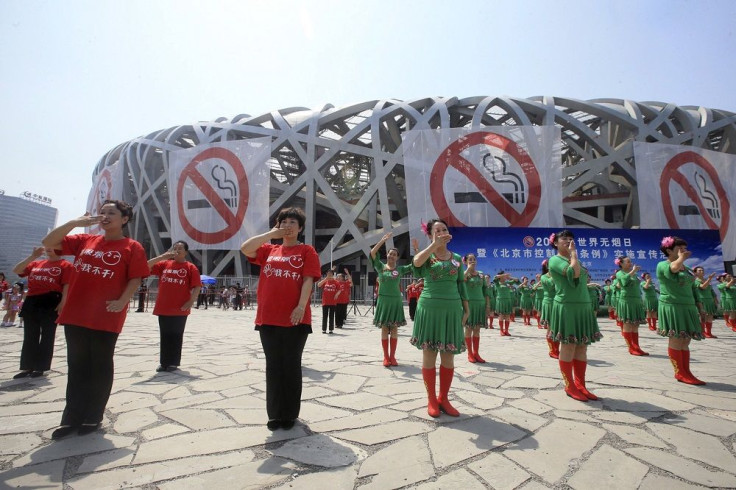Beijing Bans Smoking In Public Places Beginning June 1

The Communist Party of China has approved the prohibition of smoking in public places in Beijing, the country’s capital city. The party gave in to pressure from various health groups and set aside another pressure from the tobacco industry.
If the party would succeed in its smoking ban in Beijing which has a population of 21 million people, an award from the World Health Organisation, or WHO, honouring of Beijing’s effort to start the prohibition on June 1 – the global No Tobacco Day – could convince the party to extend the ban to other provinces and cities. The international body gave China the WHO World No Tobacco Day Award, Business Standard reports.
Shin Young-soo, WHO regional director for Western Pacific Regional Office, said, “We applauded Beijing for its strong and determined leadership in protecting the health of its people by making public places smoke-free.” China’s law banning lighting up in Beijing complies with WHO’s Framework Convention on Tobacco Control, Shin said.
China has over 300 million smokers who have exposed 740 million Chinese to second-hand smoke. The country has at least 1 million deaths yearly because of smoking-related ailments.
With the smoking ban, the Beijing airport will shutter three smoking rooms in its three terminals, but it would open 11 smoking areas outside the gateway’s terminals. The city government would also identify new outdoor smoking zones in over 600 Beijing bus stops.
But an online survey made by China’s Xinhua news agency said of more than 22,000 Chinese who participated, only 17 percent are confident that the ban would work, while 49 percent doubt its feasibility and 34 percent agree that China must cut its tobacco production.
Chinese Association on Tobacco Control Deputy Director Xi Guihua said as soon as the ban starts to take effect, Beijing will find ways to implement the law and impose punishment on violators. The prohibition includes smoking in restaurants, offices and public transport.
Violators would be fined 200 yuan, which is the equivalent of $32.25, up from the old fine of 10 yuan, or $1.60. Three breaches would result in the smoker being identified and shamed on a government portal. Fines of 10,000 yuan, or $1,600, would be slapped on businesses that would not remove smoking on their sites.
Cigarettes, which cost five yuan, or 80 US cents, could no longer be sold in stores that are within 100 metres of kindergartens and primary schools. The Chinese Parliament also approved in May a ban on tobacco adverts in mass media, public places, public transport and outdoors across China, but many cities are lax on the law’s enforcement, reports The Guardian.
To contact the writer, email: vittoriohernandez@yahoo.com





















